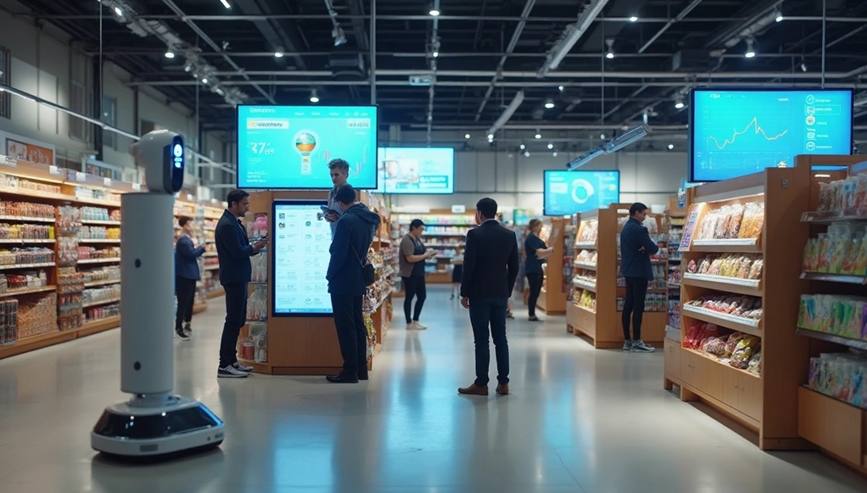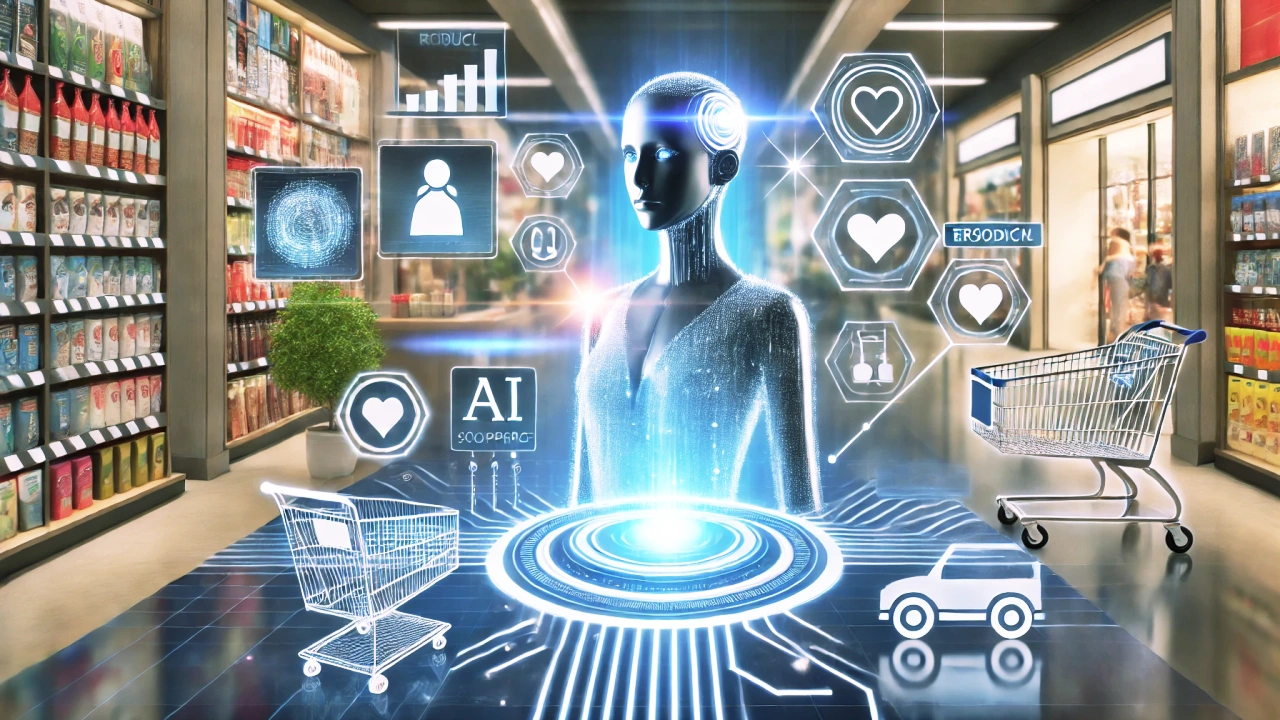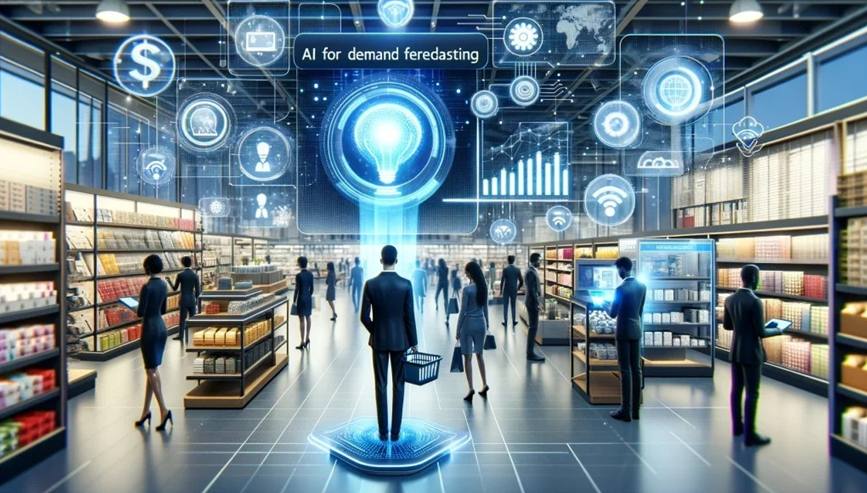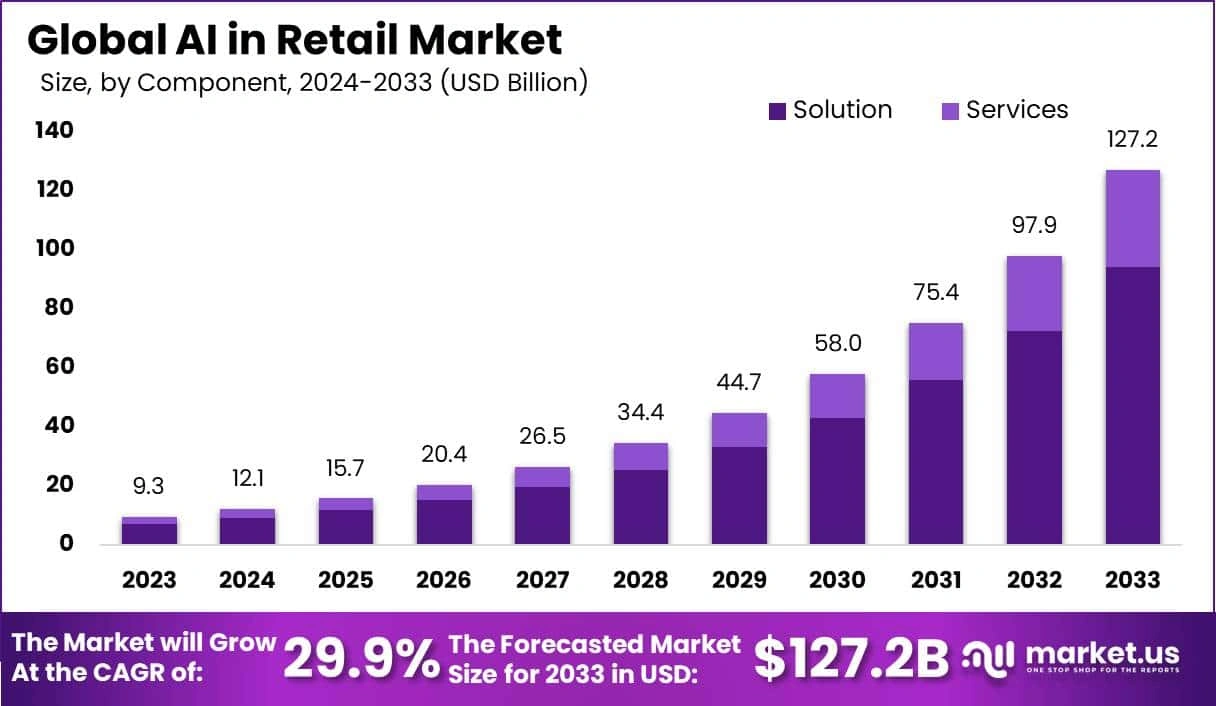
Did you know that 80% of new consumer packaged goods products fail within their first year? The retail AI transformation is revolutionising this challenging landscape through systems that can make smarter, faster decisions.
According to Salesforce’s Connected Shoppers Report, 43% of retailers are already piloting autonomous AI, with another 53% actively evaluating its use cases. This significant adoption reflects how artificial intelligence is reshaping retailing across multiple touchpoints. Additionally, 32% of consumer goods companies have fully implemented generative AI, primarily focusing on digital commerce applications.
What makes agentic AI in retail particularly compelling is its remarkable efficiency. Traditional methods of analysing new product launches typically take four to eight days, whereas agentic AI systems can evaluate 43 new product launches in approximately five minutes. This dramatic time reduction represents just one example of how to use AI in retail to achieve the 47% efficiency gains highlighted in this article.
Furthermore, the impact extends beyond speed alone. Multi-agent AI can process and analyse data in near real-time, enabling retailers to swiftly respond to emerging trends and operational issues. This capability is particularly valuable in AI shopping experiences, where consumer expectations continue to rise and competitive advantages are increasingly defined by responsiveness.
With 55% of consumer goods executives predicting that more than half their employees will be using generative AI by 2026, understanding these transformative technologies has never been more important. This article explores how agentic AI is creating these efficiency gains and what retailers should know as they prepare for 2025.
Understanding Agentic AI in the Retail Context

“Advancements position agentic AI as a cornerstone for creating a more resilient, efficient, sustainable, and autonomous supply chain.” — Microsoft, Global technology company and AI solutions provider”
Agentic AI represents a fundamental shift in how retailers can automate and enhance their operations. Unlike conventional AI systems, agentic AI focuses on autonomous decision-making and execution of complex tasks with minimal human supervision.
What is agentic AI and how it differs from generative AI
Agentic AI refers to systems designed to independently pursue complex goals, making decisions and taking actions without constant oversight. In essence, these systems combine the flexible characteristics of large language models with the accuracy of traditional programming, enabling them to operate autonomously.
The distinction between agentic and generative AI is straightforward: generative AI creates, while agentic AI acts. Generative AI produces content such as text, images, and video, but remains relatively static. In contrast, agentic AI processes information, makes decisions, and adapts to changing environments in real-time. As one industry source explains, “generative AI answers, agentic AI acts”.
The evolution from predictive to autonomous AI agents
The journey toward agentic AI has followed a clear progression. Early AI systems focused on retrospective analyses through business intelligence tools. Subsequently, predictive capabilities emerged, offering foresight into potential impacts of strategic decisions. Generative AI then enabled more interactive experiences, allowing users to pose complex questions without technical expertise.
This evolution has accelerated from simple rule-based chatbots in the 1990s to intelligent virtual assistants in the 2010s, followed by task-specific AI agents. Today’s autonomous systems can make independent decisions and execute tasks in real-time.
Why agentic AI matters for modern retail operations
For retailers, agentic AI offers several compelling advantages. First, it demystifies the ‘black box’ of predictive AI by linking recommendations with comprehensive explanations, building trust and enabling quicker decision-making.
Moreover, agentic AI can analyse vast amounts of data to anticipate market trends, optimise inventory, deliver personalised customer experiences, streamline operations, and enhance decision-making. Through these capabilities, retailers can transform their operations from reactive to proactive.
Most importantly, agentic AI can reduce process times dramatically, as exemplified by the ability to analyse 43 new product launches in five minutes compared to traditional methods taking four to eight days.
Key Retail Workflows Enhanced by Agentic AI

Retailers implementing agentic AI are witnessing significant improvements across four critical operational areas. These intelligent systems don’t just analyse data—they take decisive action, creating measurable efficiency gains throughout the retail value chain.
Autonomous supply chain management and inventory control
AI algorithms revolutionise inventory management by analysing historical sales data, market trends, and external factors to optimise stock control. This approach reduces out-of-stock incidents by up to 50% whilst increasing inventory turnover by 30%. Instead of merely forecasting, agentic AI can autonomously generate purchase orders and schedule deliveries based on real-time demand. Consequently, retailers experience minimised inventory holding costs and improved operational efficiency.
Furthermore, AI can determine the most efficient allocation of inventory across different locations by analysing customer demographics, purchasing patterns, and transportation costs. This level of intelligence moves supply chains from reactive to autonomous, with systems that continuously monitor and incrementally adjust plans based on real-world feedback.
Dynamic pricing and promotion execution
Agentic AI transforms pricing from static rules to responsive strategies. These systems analyse competitor pricing, inventory levels, and customer willingness to pay, enabling real-time price adjustments. Indeed, retailers utilising AI for promotion optimisation report up to 20% increase in promotional forecast accuracy.
By employing multi-agent frameworks, businesses can fine-tune pricing decisions for numerous products simultaneously, ensuring prices are optimised between customer perception, market positioning, and business outcomes. This capability is especially valuable during peak seasons like Black Friday, when demand fluctuates rapidly.
Omnichannel coordination across digital and physical stores
Modern consumers move fluidly between digital and physical retail channels. Agentic AI creates unified customer profiles that track interactions across all touchpoints, eliminating frustrating disconnects between channels. These systems recognise customers across platforms, continue conversations started in one channel when customers switch to another, and provide consistent pricing and promotions throughout the customer journey.
Proactive customer service and issue resolution
According to Gartner, agentic AI will autonomously resolve 80% of common customer service issues without human intervention by 2029, leading to a 30% reduction in operational costs. In addition to handling assigned tasks, these systems proactively identify and resolve issues before customers reach out, establishing pre-emptive customer service as the new standard.
47% Efficiency Gain: Where the Numbers Come From

“AI agents automate repetitive tasks and optimise operations leading to higher process efficiency levels and lower costs.” — Microsoft, Global technology company and AI solutions provider”
The dramatic [47% efficiency improvement](https://www.cflowapps.co.uk/retail-workflow-automation-with-ai/) claimed for agentic AI in retail is not merely a theoretical projection. Rather, it stems from measurable gains across multiple operational dimensions.
Reduction in manual task execution time
AI automation significantly reduces time spent on repetitive tasks, allowing employees to focus on strategic initiatives. Retailers using agentic AI report productivity increases of 20-30% as routine processes become automated. One retailer implementing AI copilots for procedural queries noted that store associates no longer needed to search through user manuals, whilst managers spent less time explaining procedures. Similarly, businesses automating customer returns and restocking have successfully reallocated floor staff to revenue-generating activities like upselling and customer styling.
Faster decision-making through real-time data analysis
Real-time data analytics represents a fundamental driver of retail efficiency. Retailers integrating online pipelines into their data workflows have achieved a 10x improvement in data accuracy and a 45% increase in lead generation. Through enhanced data analysis, AI agents provide instant insights that help retailers make informed strategic decisions. This immediacy allows for dynamic pricing, optimised inventory management, and personalised customer experiences.
Improved accuracy in demand forecasting and stock planning
AI algorithms excel at identifying patterns and relationships that human analysts might miss. Specifically, AI-driven forecasting helps retailers:
- Maintain optimal inventory levels, reducing excess stock whilst ensuring product availability
- Respond swiftly to market changes and supply chain disruptions
- Minimise carrying costs associated with excess inventory
Case example: 4-day product evaluation reduced to 5 minutes
Perhaps the most striking efficiency gain comes from a merchandising transformation. At one retailer, quantifying a supplier’s offer now takes approximately 15 minutes, compared with 45 minutes before AI automation. Likewise, the time needed to prepare tailored feedback on early offers has fallen from an hour to 20 minutes. Overall, processes that previously took four days can now be completed in just 5 minutes, illustrating how AI in retail creates unprecedented operational efficiency.
Strategic Implications for Retailers in 2025
As retail undergoes AI-driven transformation, forward-thinking companies are focusing on strategic implementation rather than merely chasing efficiency gains. The integration of agentic AI requires thoughtful approaches that prioritise both technology and human factors.
How agentic AI supports human employees, not replaces them
Agentic AI primarily enhances human capabilities rather than eliminating jobs. At BDO Colombia, AI implementation reduced operational workload by 50% whilst optimising 78% of internal processes. This technology allows employees to shift from time-intensive tasks to strategic planning and relationship building. As one retail CIO notes, “The ‘human in the loop’ is still incredibly important and always will be”. Effective AI integration frees staff from repetitive tasks, enabling them to focus on creative, strategic, and customer-focused work.
Preparing legacy systems for AI agent integration
Integrating AI with existing infrastructure requires addressing several technical challenges. Legacy systems often store data in isolated silos, complicating AI implementation. Successful integration typically involves:
- Creating abstraction layers and middleware that translate between old and new systems
- Implementing APIs and RESTful services to enable data exchange without altering core functions
- Adopting microservices architecture for modular integration
These approaches extend infrastructure lifespan without costly overhauls, with middleware solutions typically requiring just 6-12 weeks for implementation versus months for full system replacements.
Building trust through explainable AI recommendations
Retailers must prioritise explainable AI (XAI) to address the “black box” problem of AI decision-making. By making AI systems transparent, retailers can:
- Audit their AI-based systems to identify biases
- Build customer confidence through clear explanations of recommendations
- Demonstrate compliance with regulatory standards
When shoppers understand why they see certain recommendations or search results, they’re more likely to engage with them, driving increased conversions.
Conclusion
The Future of Retail Lies in Agentic AI Partnership
Retailers adopting agentic AI technology have witnessed remarkable efficiency gains across their operations. These autonomous systems demonstrate a 47% improvement in workflow efficiency through significant reductions in manual task execution, real-time data analysis capabilities, and enhanced accuracy in demand forecasting.
Most compelling evidence comes from the dramatic transformation of new product evaluations, where processes once requiring four days now complete in just five minutes. This time compression represents merely one example of how agentic AI reshapes retail operations fundamentally.
Unlike its generative counterparts, agentic AI moves beyond content creation toward independent action and decision-making. This distinction enables retailers to shift from reactive responses to proactive strategies, particularly in supply chain management, dynamic pricing, omnichannel coordination, and customer service.
The future retail landscape requires thoughtful integration rather than wholesale replacement of human talent. Successful implementation depends on preparation of legacy systems, establishment of transparent AI processes, and alignment with customer experience objectives. Accordingly, retailers must view AI agents as collaborative tools that enhance human capabilities rather than substitutes for human judgement.
Certainly, challenges remain as retail organisations navigate this technological transition. Data silos, system incompatibilities, and trust barriers require careful consideration. Nevertheless, retailers who embrace agentic AI while maintaining human oversight position themselves advantageously for 2025 and beyond.
The retail AI revolution has progressed from mere possibility to competitive necessity. Organisations that adapt quickly stand to benefit from unprecedented operational efficiencies, allowing their human workforce to focus on strategic initiatives and creative problem-solving that machines cannot replicate. Though technology drives this transformation, human creativity and relationship-building remain essential components of retail success.
Ready to discover how AI can revolutionize your retail operations? Book a consultation with our team today and learn how Avkalan can help you stay ahead in the AI-powered retail revolution.
Book a Consultation with our Team →
Transform your retail business with AI solutions tailored to your unique needs. Let’s build the future of retail together.
FAQs
Agentic AI autonomously makes decisions and takes actions, while generative AI
creates content. In retail, agentic AI can independently manage inventory, adjust pricing, and
resolve customer issues, whereas generative AI might produce product descriptions or marketing
content.
Agentic AI significantly enhances efficiency in supply chain management, dynamic
pricing, omnichannel coordination, and customer service. It automates tasks, provides real-time data
analysis, and enables faster decision-making across these areas.
Agentic AI can dramatically reduce product evaluation time. For instance, it can
analyse 43 new product launches in about five minutes, a process that traditionally took four to
eight days to complete manually.
No, agentic AI is designed to support rather than replace human employees. It
automates repetitive tasks, allowing staff to focus on strategic, creative, and customer-focused
work that requires human skills and judgement.
Retailers can prepare for agentic AI integration by creating abstraction layers and
middleware to connect legacy systems, implementing APIs for data exchange, and adopting
microservices architecture. This approach allows for modular integration without costly overhauls of
existing infrastructure.
